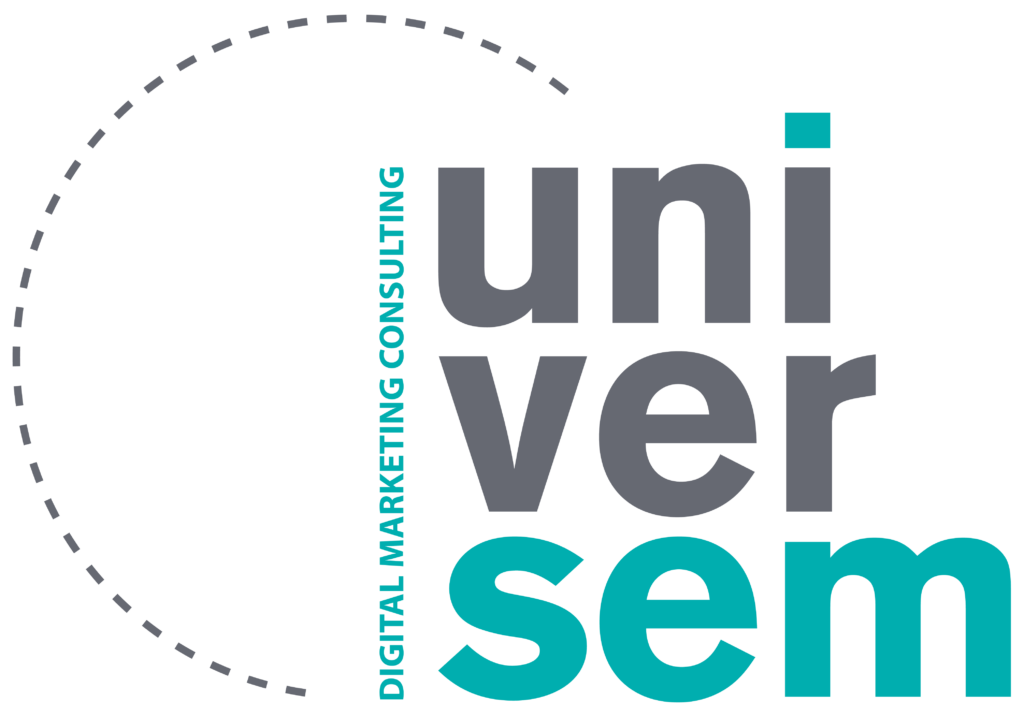For Universem, October 2020 was dedicated to our SEO Next Gen event. This event was planned for the second year in a row, although this edition was a bit different than the previous one. Due to the the lockdown measures, our event could not go ahead in its usual format.
That is why this year, we had decided to make SEO Next Gen 2020 a virtual event, with success. Together with our experts, speakers such as Fernando Angulo from SEMrush, Bastian Grim from PeakAce and Gaëtan Malfeyt from Mega, created an event full of SEO trends and news. Thanks to everyone who attended the event and thanks for the nice feedback after the event!
Have you missed the event or would you like to replay a session?
Not to worry, in this article we will list the main tips and tricks or contact marketing@universem.com to get access to the replays.
Session 1: ‘How to make the migration of your website a strategic success?’
– Amandine Dethier (Universem)
Amandine Dethier, one of our in-house SEO experts, kicked off SEO Next Gen 2020 with a session on website migration. A topic that cannot be underestimated, as a good website migration can

take your website to new heights. The most important tip of this session? The secret to a successful website migration lies in a good preparation. Amandine further defines this with 3 elements:
- Anticipate: Plan the migration process carefully. Anticipate the impact different actions will have on the website and who should be involved in these actions. This prevents future problems and allows you to react on time in case of complications.
- Communicate: People working on the new website often only communicate with those directly in charge of the new website (IT, website management,…). However, important information about the new website (changes, deadlines,…) is best shared with multiple stakeholders (company, IT and SEO expert for example).
- Adapt: It is important to remain flexible. Unforeseen problems that may arise during the creation of the website should always be resolved before the launch. This prevents your new website from and not functioning properly when it is online because there was no time to solve a problem during the development phase.
You want to read more about website migrations?
Download our white paper, filled with practical tips and tricks, here.
EN version
Session 2: ‘The state of SEO in Belgium today’
– Fernando Angulo (SEMrush)
During the second session, Fernando Angulo shed some light on the performances of Belgium’s largest websites with SEMrush’s research tools. It allowed you to get a a good idea of what is  going on in the Belgian digital industry today. After analyzing up to 150 websites from different sectors (Media, Health, Retail & Ecommerce, Sports, Travel,…) in terms of traffic (organic and paid), social media and on-page results, Fernando came to the following conclusions:
going on in the Belgian digital industry today. After analyzing up to 150 websites from different sectors (Media, Health, Retail & Ecommerce, Sports, Travel,…) in terms of traffic (organic and paid), social media and on-page results, Fernando came to the following conclusions:
- Users drive the conversation online and are no longer guided by intrusive and irrelevant ads.
- Always think about the distribution channels before creating content. Is it a text? If so, think about how Google and your users will respond and show this content.
- It is important to create content with both users and search engines in mind. Ideally, a text is is around 800 words long and takes 3 minutes to read.
- Good visibility of website content requires teamwork. The entire marketing team is involved.
- Look for long-tail keywords. These are the “low hanging fruit” that can have an impact on your visibility online.
Session 3: Customer case Mega; SEO, SEA and the electricity between them
– Gaëtan Malfeyt (Mega), Corentin Donneaux (Universem) & Hubert de Cartier (Universem)
 We went into detail about the synergy between SEO and SEA during the third session of the SEO Next Gen 2020 event, together with Gaëtan Malfeyt of Mega. Often these different expertise are treated separately, but together with Mega we have been able to combine advertising and SEO for a successful rebranding campaign.
We went into detail about the synergy between SEO and SEA during the third session of the SEO Next Gen 2020 event, together with Gaëtan Malfeyt of Mega. Often these different expertise are treated separately, but together with Mega we have been able to combine advertising and SEO for a successful rebranding campaign.
How did we do it? It was a real teamwork between our SEA and SEO experts, together with Mega. SEA provided exciting ads that clearly emphasized Mega’s new image as the cheapest energy supplier. And SEO pushed for the optimization of the landing pages of the campaigns, paying attention to both the content and the technical aspects. In addition, a good keyword list and website structure on the SEO side gave a boost to SEA, resulting in higher ad rankings and a lower cost per click!
Behind these nice results and strong strategy, lie a number of core ideas:
- Try to remove your bias and put yourself in the shoes of your customers: What are they thinking of? What do they need?
- A good preparation is crucial! Developing a successful strategy and optimizing the website and advertisements takes time.
- A smooth collaboration between the expertise (SEA & SEO) and the customer will ensure better results.
- A flexible SEO strategy is necessary. Google is constantly updating itself, which means that search results are also subject to change. A strategy prepared for this will remain in the first place.
Session 4: e-Commerce SEO reloaded
– Bastian Grimm (Peak Ace)
Bastian Grimm, CEO & Director Organic Search van Peak Ace zorgde voor de laatste sessie van SEO Next Gen 2020. En met een topic dat nu in de lift zit, e-commerce, had hij een aantal  interessante tips te vertellen, gebaseerd op ervaringen van wel 100+ audits. Vooral de technische uitdagingen van een e-commerce website werden onder de loep genomen, met het oog op betere zichtbaarheid in de organische zoekresultaten.
interessante tips te vertellen, gebaseerd op ervaringen van wel 100+ audits. Vooral de technische uitdagingen van een e-commerce website werden onder de loep genomen, met het oog op betere zichtbaarheid in de organische zoekresultaten.
Bastian Grimm, CEO & Director Organic Search of Peak Ace took care of the final session of SEO Next Gen 2020. With a topic currently on the rise, e-commerce, he had some interesting tips to tell, based on experiences of up to 100+ audits. In particular, the focus of this talk was on the technical challenges of an e-commerce website, to help improve visibility in organic search results.
Here are some of his top tips:
- Think about the crawl and indexation strategy for the product category and subcategory pages. Use the right keywords on the subcategory pages and configure the website so that no filtered pages are indexed.
- Pay attention to the quality of the content on the product detail pages. Automatically generated content or product pages with little difference between each other can be seen as duplicated content.
- A product detail page can sometimes be accessible via different URLs, because it belongs in 2 or more product categories. The result? Different URLs with the same content, leading to a duplicate content issue. The solution? Use only 1 URL per specific product, which does not depend on the product categories.
- Manage your out-of-stock products correctly. For example, use a redirect to the same product in a different color or product. Work with 410 errors if the product page really needs to be completely deleted.
- Use schema.org markup to create visual and bigger search results. This allows potential customers to already see your products during their search process online, without having to access your website.
- Create a good XML sitemap so Google will be able to efficiently discover, crawl, and index the website. Avoid 404 or unnecessary pages.
- Website speed is important for UX. If the website is too slow, visitors will quickly leave. Pay attention to the mobile speed, but also to the faster loading of images, fonts and JavaScript.
Would you like to view these sessions again?
Contact marketing@universem.com to access the replays.
Interested in an SEO project?
Do not hesitate to take a look at our services or get in touch with us.


